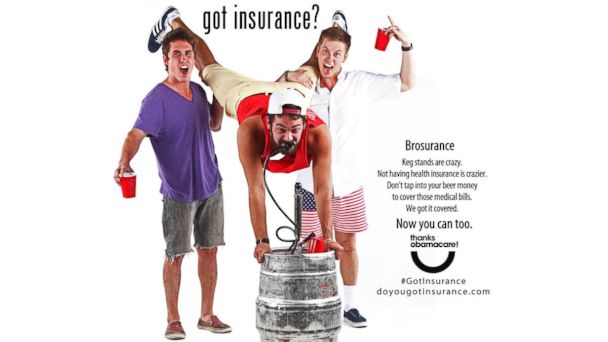Young Uninsured Men Targets of 'Brosurance Ads'
Insurance policy wonks call them the "young invincibles." Everybody else just calls them "bros."
A pair of left-leaning Colorado nonprofits have launched an ad campaign aimed at getting "bros" - young, healthy men - to sign up for insurance through the state exchange set up under the Affordable Care Act, or what the kids call Obamacare.
"Brosurance" is the most viral part of a "Got Insurance" campaign launched by the Colorado Consumer Health Initiative and Progress Now to encourage the uninsured to purchase healthcare.
"Keg stands are crazy," reads the copy for the Brosurance spot, featuring three young men engaged in some classic fratboy antics. "Not having health insurance is crazier. Don't tap your beer money to cover those medical bills."
"Modeled after the iconic Got Milk? ad campaign, Got Insurance? features everyday Coloradans with a message to the under- and uninsured that they now may be able to afford and purchase health insurance," said Adam Fox, director of strategic engagement for CCHI in a statement.
The campaign also targets mothers and pregnant women, but six of the eight ads are aimed at young men, a group insurance authorities say are the most needed and least likely to buy insurance.
Getting the right mix of people, especially young, healthy individuals, is critical to the success of the program, experts and proponents say.
Young, healthy people who do not receive insurance through their jobs typically went uninsured in the past. The ACA hopes to create incentives for that pool of people to join, but also promises a punishment if they don't - a fine this year of $95.
Young, healthy people are critical to making the system work. By putting money into the pool, but taking little out for medical expenses they "contribute to the system by spreading around risk," said Ceci Connolly, managing director for PwC's Health Research Institute. "By not needing as much care, they help subsidize potentially sicker participants."
The state healthcare marketplaces, or exchanges, went online on Oct. 1, but have been plagued by technical issues and malfunctioning websites.
